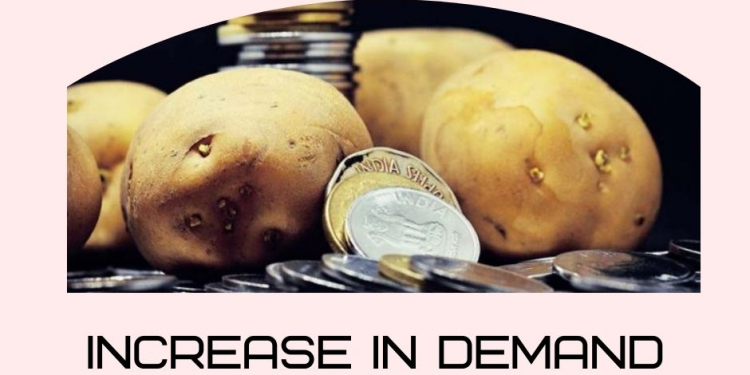The latest Union Nationale des Producteurs de Pommes de Terre (UNPT) forecasts for the 2022-2023 potato campaign show that the attractiveness and profitability of the cultivar crop are still in question. To rectify the situation, UNPT’s experts believe that the 2022 contracts must be profitable and secure producers.
Even with the uncertainty of the COVID-19 pandemic still hovering over industry players’ heads, UNPT experts say, demand for processed potato-based products has resumed and manufacturers are on a positive development trajectory, in terms of both volumes and areas.
Concerning the potato production costs, like those of other agricultural productions, they have been rising sharply for several months.
“There is nothing to say what will happen next spring when the potatoes are planted: energy, fuels, fertilizers, consumables are subject to price increases to unprecedented levels,” the UNPT representatives added.
The same forecast shows that the price of agricultural production (cereals, oilseeds, etc.) has ‘rarely been so high’ and will lead producers to arbitrate their rotations based on unusual parameters.
“Competition between different cultures will be intense. The increase of the areas sown with potatoes, which seemed likely to continue for several years, will certainly be affected by this new situation,” the organization leaders continued.
They say that the conditions of the 2022 contracts are currently being unveiled and show increases that are insufficient to make up for the reductions applied to the prices of contracts in 2021 (despite increases in production costs already at the time) and the increases in charges in 2022.
Based on UNPT’s analysis, in line with the NEPG’s press release of November 19, the organization’s leaders consider that those above-mentioned increases should be between EUR+30 and EUR+40 per ton, to allow producers to respond positively to the questions and issues proposed.
“In addition to these price increases, the contracts will have to incorporate elements that secure the producer and support him in his (growing) production risk-taking. At a time when the EGAlim 2 law will see the light of day, this is undoubtedly the opportunity for all players in the sector to find a fair balance for its suppliers and customers,” the experts concluded.






